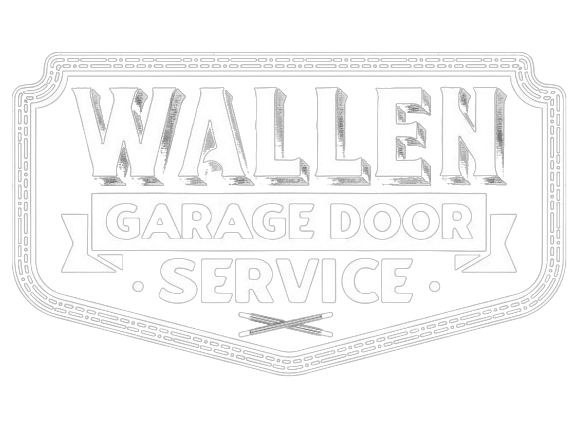In the realm of home maintenance, few tasks are as crucial yet often overlooked as the proper lubrication of your garage door. You might have found yourself pondering, “Where exactly should I lubricate my garage door?” Well, you’re not alone. Many homeowners grapple with this question, unsure of where to start or what areas require attention.
Let’s clear the air right from the start: lubricating your garage door isn’t just an optional chore—it’s an essential step in ensuring its smooth and efficient operation. Think of it as giving your trusty garage door a little TLC, prolonging its lifespan and minimizing wear and tear along the way. Without proper lubrication, your garage door may become noisy, sluggish, or even prone to malfunction—a headache that no homeowner wants to deal with.
But fear not! In this comprehensive guide, we’ll delve into the nitty-gritty of garage door lubrication, leaving no hinge unturned and no roller un-oiled. Whether you’re a seasoned DIY enthusiast or a novice homeowner, our step-by-step instructions will equip you with the knowledge and confidence to tackle this essential maintenance task like a pro.
So, if you’re ready to bid farewell to squeaky hinges and stubborn rollers, keep reading. We’re about to uncover the key areas to lubricate for a garage door that glides effortlessly with every open and close. Your smooth-functioning garage door awaits—let’s dive in.
Unlocking the Mechanics: A Closer Look at Garage Door Operation
Your garage door, seemingly a simple fixture, operates through a sophisticated mechanism comprising various components. From springs to tracks, each part plays a pivotal role in ensuring seamless functionality. When you press that button or pull that lever, it’s these intricate workings that come to life, effortlessly lifting or lowering your garage door with precision.
The Lubrication Link: Preserving Functionality
Among these components, lubrication emerges as a vital player in the maintenance game. Picture it as the unsung hero, silently working behind the scenes to reduce friction and wear. By applying lubricant to hinges, rollers, and tracks, you’re essentially giving your garage door the gift of smooth operation and longevity. It’s the oil that keeps the gears turning, ensuring your garage door functions flawlessly for years to come.
Emphasizing the Importance of Regular Maintenance
But lubrication isn’t just about keeping things running smoothly—it’s about prioritizing the safety and security of your home. Regular maintenance, including lubrication, is key to preventing accidents and unexpected failures. By taking proactive steps to preserve the integrity of your garage door, you’re safeguarding your investment and ensuring peace of mind for you and your family.
In the following sections, we’ll delve into the specifics of where to lubricate your garage door, providing expert guidance to help you maintain its optimal performance. So, grab your lubricant and let’s dive into the world of garage door maintenance—your smooth-functioning door awaits.

Nurturing Your Garage Door: Essential Areas for Lubrication
Hinges and Rollers
The hinges and rollers of your garage door serve as the backbone of its operation, allowing smooth movement as the door opens and closes. Over time, these components can become stiff or worn, leading to friction and potential damage. To keep them in prime condition, apply lubricant generously to both the hinges and rollers. This will not only reduce friction but also minimize noise, ensuring your garage door glides effortlessly with each use.
Springs
Ah, the springs—the unsung heroes of garage door lifting. Responsible for bearing the weight of the door, these coils undergo immense stress with every operation. Without proper lubrication, they can become noisy, rusted, or even snap under pressure. To prevent such calamities, apply lubricant to both the torsion and extension springs. This will not only prolong their lifespan but also ensure the smooth operation of your garage door.
Tracks and Rails
The tracks and rails provide the guiding path for your garage door, ensuring it moves up and down with precision. However, dirt, debris, and rust can accumulate over time, causing the door to stick or jerk as it moves. To prevent this, regularly clean the tracks and rails, removing any buildup that may impede movement. Once clean, apply lubricant sparingly along the tracks to reduce friction and facilitate smooth operation.
Locks and Handles
While often overlooked, the locks and handles of your garage door play a crucial role in its security and functionality. Without proper lubrication, they can become stiff or difficult to operate, compromising the safety of your home. To prevent this, apply lubricant to both the lock mechanism and the handles, ensuring they move freely without resistance. This will not only enhance security but also make it easier to access your garage when needed.
Opener Chain or Belt
Last but not least, don’t forget about the opener chain or belt—the powerhouse behind your garage door’s automated operation. Without proper lubrication, these components can become noisy or prone to wear, affecting the smoothness of your garage door’s movement. To keep them in top condition, apply lubricant to the chain or belt, ensuring it moves effortlessly along its track. This simple step will prolong the life of your opener and keep your garage door operating smoothly for years to come.
By addressing these key areas of your garage door with regular lubrication, you’re not just prolonging its lifespan—you’re investing in the continued functionality and security of your home. So, take the time to give your garage door the care it deserves, and enjoy the peace of mind that comes with knowing it’s operating at its best.
Selecting the Perfect Lubricant: A Guide to Keeping Your Garage Door Running Smoothly

Discussing Different Types of Lubricants
When it comes to lubricating your garage door, not all lubricants are created equal. In fact, the type of lubricant you choose can significantly impact the performance and longevity of your door. Generally, there are three main types of lubricants to consider:
- Silicone-Based Lubricants: Known for their versatility and longevity, silicone-based lubricants are an excellent choice for garage doors. They offer superior lubrication without attracting dust or dirt, making them ideal for all types of weather conditions.
- Lithium-Based Greases: Lithium-based greases are another popular option for garage door lubrication. They provide excellent lubrication and protection against rust and corrosion, making them suitable for high-stress areas such as springs and hinges.
- White Lithium Greases: White lithium greases are specifically formulated to withstand heavy loads and extreme temperatures, making them ideal for garage door applications. They offer long-lasting lubrication and excellent resistance to water and moisture.
Recommendations for the Best Lubricant for Garage Doors
While each type of lubricant has its own advantages, silicone-based lubricants are often recommended for garage door maintenance. Their non-stick properties and resistance to extreme temperatures make them an ideal choice for all moving parts of the door, including hinges, rollers, tracks, and springs. Look for a high-quality silicone spray or lubricant specifically designed for garage doors for optimal results.
Tips for Application
Now that you’ve chosen the right lubricant for your garage door, it’s time to apply it effectively. Here are some tips to ensure smooth and efficient lubrication:
- Clean the Surfaces: Before applying lubricant, make sure to clean the surfaces thoroughly to remove any dirt, debris, or old lubricant buildup. This will ensure maximum effectiveness and longevity of the lubricant.
- Apply Sparingly: When applying lubricant, remember that a little goes a long way. Apply a small amount to each hinge, roller, track, and spring, being careful not to over-lubricate. Excess lubricant can attract dirt and debris, causing more harm than good.
- Wipe Excess: After applying lubricant, use a clean cloth to wipe away any excess. This will prevent buildup and ensure smooth operation of your garage door.
- Regular Maintenance: Make lubrication a part of your regular garage door maintenance routine. Aim to lubricate the key areas at least once a year, or more frequently if you notice any signs of wear or friction.
By choosing the right lubricant and following these simple tips for application, you can ensure that your garage door operates smoothly and efficiently for years to come. So, invest in the right lubricant today and enjoy the benefits of a well-maintained garage door tomorrow.
Maintaining the Flow: How Often Should You Lubricate Your Garage Door?

Guidelines for How Often to Lubricate
Lubricating your garage door is not a one-and-done task—it requires regular attention to keep everything running smoothly. As a general rule of thumb, experts recommend lubricating your garage door at least once a year. This ensures that all moving parts remain adequately lubricated and minimizes the risk of wear and tear.
However, certain factors may warrant more frequent lubrication. For example, if you live in an area with extreme temperatures or high humidity, your garage door may require more frequent lubrication to combat the effects of moisture and corrosion. Similarly, if your garage door sees heavy use on a daily basis, you may need to lubricate it more often to maintain optimal performance.
Factors That May Affect the Frequency
Several factors can influence how often you need to lubricate your garage door. These include:
- Climate: Extreme temperatures, humidity, and exposure to the elements can affect the performance of your garage door and may require more frequent lubrication.
- Frequency of Use: The more frequently you use your garage door, the more quickly its moving parts may wear down and require lubrication.
- Age and Condition: Older garage doors or those in poor condition may require more frequent lubrication to compensate for wear and tear.
- Type of Lubricant: Some lubricants offer longer-lasting protection than others. Consider using a high-quality silicone-based lubricant for maximum longevity between applications.
Signs That Indicate the Need for Lubrication
So, how do you know when it’s time to lubricate your garage door? Look out for these telltale signs:
- Squeaking or Grinding Noises: If your garage door emits loud, squeaking, or grinding noises when opening or closing, it’s a clear indication that the moving parts need lubrication.
- Difficulty Opening or Closing: If your garage door feels stiff or difficult to open or close, it may be due to insufficient lubrication. Lubricating the hinges, rollers, and tracks can help restore smooth operation.
- Rust or Corrosion: Visible signs of rust or corrosion on the hinges, rollers, or tracks indicate that lubrication is needed to protect against further damage.
By paying attention to these signs and following the recommended guidelines for lubrication, you can ensure that your garage door operates smoothly and efficiently year-round. Don’t wait until problems arise—make lubrication a regular part of your maintenance routine and enjoy the benefits of a well-maintained garage door for years to come.
Frequently Asked Questions: Garage Door Lubrication Demystified
What Type of Lubricant Should I Use?
Choosing the right lubricant for your garage door is crucial for optimal performance and longevity. Silicone-based lubricants are often recommended for their versatility and long-lasting protection against friction and corrosion. Look for a high-quality silicone spray or lubricant specifically formulated for garage doors for best results.
How Often Should I Lubricate My Garage Door?
As a general rule of thumb, it’s recommended to lubricate your garage door at least once a year. However, certain factors such as climate, frequency of use, and the type of lubricant used may necessitate more frequent lubrication. Pay attention to signs such as squeaking noises or difficulty opening and closing, as these may indicate that lubrication is needed.
Can I Use WD-40 to Lubricate My Garage Door?
While WD-40 is a popular multi-purpose lubricant, it may not be the best choice for lubricating garage doors in the long term. WD-40 is primarily a solvent and water displacement spray rather than a long-lasting lubricant. While it can provide temporary relief from squeaks and stiffness, it may not offer the same level of protection against friction and corrosion as silicone-based lubricants.
Should I Lubricate Both Sides of the Garage Door Tracks?
Yes, it’s recommended to lubricate both sides of the garage door tracks for optimal performance. Apply lubricant sparingly along the entire length of the tracks, ensuring even distribution. This will reduce friction and allow the rollers to move smoothly along the tracks, prolonging the life of your garage door system.
Is It Necessary to Lubricate the Weatherstripping?
While lubricating the weatherstripping is not essential for the operation of your garage door, it can help prolong its lifespan and maintain flexibility. Use a silicone-based lubricant or a vinyl protectant spray to condition the weatherstripping and prevent it from drying out or cracking over time. This will ensure a tight seal and protect against drafts, moisture, and pests.
By addressing these common questions and concerns about garage door lubrication, you can ensure that your garage door operates smoothly and efficiently for years to come. Don’t hesitate to reach out to a professional if you have any further questions or need assistance with lubrication or maintenance.
Conclusion
In the realm of home maintenance, few tasks are as critical yet often overlooked as the proper lubrication of your garage door. From reducing friction to minimizing wear and tear, lubrication plays a pivotal role in ensuring the smooth and efficient operation of your garage door. By addressing common concerns and providing practical advice, we’ve shed light on the significance of this often neglected maintenance task.
As we’ve discussed, regular maintenance is key to preserving the functionality and longevity of your garage door. By incorporating lubrication into your routine maintenance schedule, you’re taking proactive steps to prevent costly repairs and ensure the safety and security of your home. So, don’t wait until problems arise—make lubrication a priority and enjoy the benefits of a well-maintained garage door year-round.
But our journey doesn’t end here. If you’re hungry for more tips and insights on garage door maintenance, we invite you to continue exploring our resources. From troubleshooting guides to expert advice, we’re here to empower you with the knowledge and tools you need to keep your garage door running smoothly for years to come. So, dive in, explore, and take control of your garage door maintenance today.
In conclusion, proper lubrication is the key to unlocking the full potential of your garage door. By understanding its importance, embracing regular maintenance, and arming yourself with the right knowledge, you can ensure that your garage door operates flawlessly, providing convenience, security, and peace of mind for you and your family.







